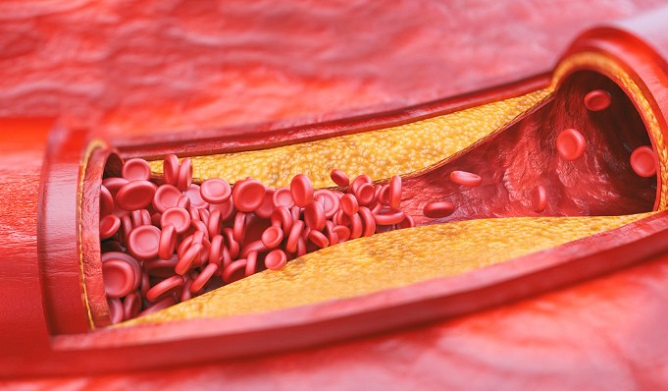Nikhil Prasad Fact checked by:Thailand Medical News Team Aug 31, 2025 6 months, 5 days, 3 hours, 45 minutes ago
Medical News: A new study by researchers from the Department of Internal Medicine and Hypertension at the Medical University of Bialystok, Poland has revealed that people who have recovered from COVID-19 or had been exposed to COVID-19 may face a hidden cardiovascular danger. The infection appears to accelerate the thickening of the arteries, a silent process that can lead to serious health problems like stroke and heart attack. This
Medical News report brings the findings into focus for ordinary readers who may not be familiar with medical terminology.
 Those Exposed to COVID-19 Face Hidden Threat of Faster Artery Damage
How the study was conducted
Those Exposed to COVID-19 Face Hidden Threat of Faster Artery Damage
How the study was conducted
The research team followed 92 patients, 47 of whom had experienced COVID-19 while 45 served as healthy controls. They measured the thickness of the inner walls of the carotid arteries—the large blood vessels in the neck that supply the brain—with ultrasound scans. These measurements, known as carotid intima-media thickness (IMT), were taken twice, over a period of 12 to 18 months. IMT is a widely accepted marker for early atherosclerosis, which is the gradual narrowing and hardening of arteries.
Key findings
At the beginning of the study, both groups showed similar artery wall thickness. But over time, a significant difference emerged. Patients who had recovered from COVID-19 showed a much greater increase in artery thickening compared to those who had never been infected. The median change was 0.13 mm for the COVID group, compared to just 0.05 mm for the controls. Even more concerning, nearly 70 percent of the COVID group showed progression above the average threshold, while only 36 percent of the control group did.
The study also found that higher levels of C-reactive protein (CRP), a marker of inflammation, and an unhealthy balance of blood fats (measured by the triglyceride-to-HDL cholesterol ratio) were strongly linked with worsening artery damage in the COVID group. Age and faster heart rates were also predictors of artery thickening. This suggests that inflammation, metabolic disruption, and heart strain all play roles in the hidden cardiovascular risks that follow COVID-19.
Why this matters
Atherosclerosis is a silent condition that develops slowly over years, often without symptoms until a major health event occurs. The findings of this study show that COVID-19 may act as a powerful accelerator of this dangerous process. The virus not only causes temporary illness but may also leave behind long-lasting changes in the vascular system, increasing the risk of future strokes and heart attacks. This highlights the importance of long-term monitoring of COVID-19 survivors, even those who appeared to recover fully.
Conclusion
The researchers warn that these results underline the need for preventive strategies. Doctors may need to pay closer attention to cholesterol levels, heart rate, and signs of inflammation in patients who have recovered from COVID-19. Lifestyle adjustments such as diet, exercise, and reg
ular checkups may also help reduce long-term risks. While larger studies are still required to confirm these findings, the message is clear: COVID-19 does not always end with recovery, and its impact on arteries could continue silently for years. Recognizing this hidden risk is vital for preventing future cardiovascular tragedies.
The study findings were published in the peer reviewed journal: Viruses.
https://www.mdpi.com/1999-4915/17/9/1196
For the latest COVID-19 news, keep on logging to Thailand
Medical News.
Read Also:
https://www.thailandmedical.news/news/covid-19-is-driving-a-silent-health-crisis-as-it-rapidly-causes-a-unique-form-of-lethal-atherosclerosis-in-many
https://www.thailandmedical.news/news/is-platelet-activating-factor-the-key-link-between-covid-19-and-atherosclerosis-risk
https://www.thailandmedical.news/news/american-study-warns-that-covid-19-is-triggering-the-onset-and-progression-of-atherosclerosis-in-many
